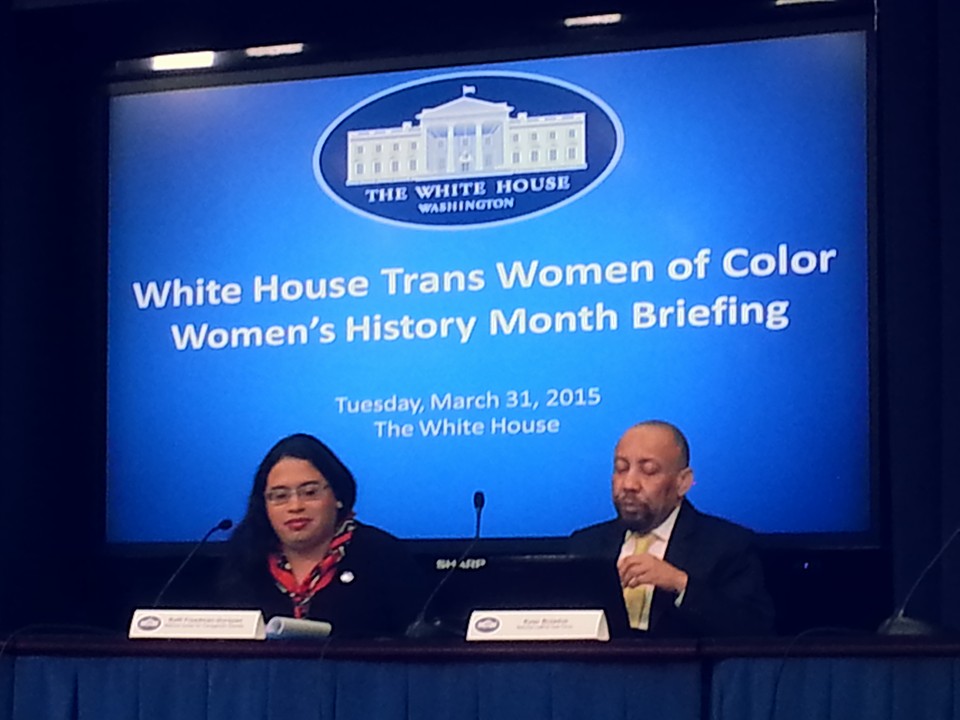Historic White House Briefing on Trans Women of Color Marks Trans Day of Visibility

In a historic White House briefing today, over 50 transgender women of color gathered to celebrate Women’s History Month and simultaneously mark International Day of Transgender Visibility. Transgender women of color leaders and activists represented African American, Asian American, Latina, Native American, and immigrant communities across the nation. Organized by the White House and the National LGBTQ Task Force, this is the first time transgender women of color, which included National Center for Transgender Equality's Policy Advisor for the Racial and Economic Justice Initiative, have solely discussed their lives and experiences directly with administration officials.
La sesión informativa se produce a la luz del aparente aumento en los asesinatos de mujeres transgénero en los últimos años, y dentro de un clima político nacional, la intención de legislar sobre el derecho de las personas transgénero a usar el baño o participar en deportes escolares.
Treinta mujeres transgénero han perdido la vida por la violencia en los últimos dos años, muchas de ellas en manos de una pareja íntima. Solo en los primeros meses de 2015, ocho mujeres transgénero fueron brutalmente asesinadas desde Kentucky hasta California, hasta Florida. La mayoría eran menores de 30 y eran de color. Además, los ataques violentos y la discriminación continúan afectando las vidas de las personas transgénero en todo Estados Unidos.
Panelists at the convening included Dr. Ayana Elliot from FNP, The Elliott Group, LLC, Bamby Salcedo from the Trans Latina Coalition, Cecilia Chung from Transgender Law Center, Kylar Broadus from the National LGBTQ Task Force, LaLa Zannell from the New York City Anti-Violence Project, Ruby Corado from Casa Ruby, Tracee McDaniel from Juxtaposed Center for Transformation, Inc., and Mattee Jim from the Fuente de salud comunitaria de las Primeras Naciones . Together, they offered recommendations on how the federal government and community partners should respond to violence addressing not only the incidents of physical violence, but also the systemic barriers and discrimination transgender women face in their daily lives.
“Gandhi once said, ‘Poverty is the worst form of violence,’” said Raffi as she offered her recommendations for a federal response. “Any solution to this crisis must be rooted in combating poverty, hunger, racism, and other social injustices that continue to hinder the advancement of transgender women as equal members of our society.”
Freedman-Gurspan called on the Administration to develop a national action plan on transgender women, addressing discrimination and violence, housing insecurity and homelessness, unemployment and economic empowerment, health care and mental health/substance abuse care, and criminal justice reforms important to the trans women, especially those of color. In addition, she recommended that the Department of Justice and FBI more vigorously track hate crimes committed against transgender women and that the communities traumatized by sustained violence should be connected with the Community Relations Service and other entities that work with communities affected by hate violence.
If you or someone you know has faced violence or discrimination in any area of life, please contact the US Commission on Civil Rights which is accepting public comments and personal stories about transgender experiences until April 14, 2015.

